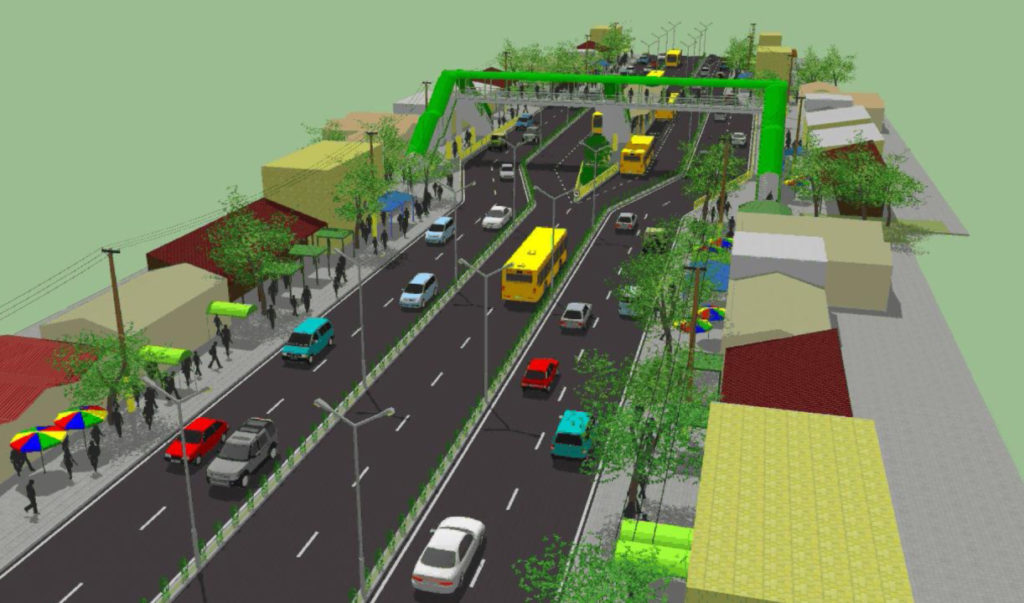
BRT (source Colin Brader March 2012)
CEBU CITY, Philippines — The Cebu Bus Rapid Transit (BRT) may have started its partial operations during the first quarter of 2020 but the Commission on Audit (COA) flagged the project once again.
In their 2019 Consolidated Audit Report on Official Development Assistance-Funded Programs and Projects, state auditors discovered that the cumulative commitment fee of Cebu BRT has ballooned to P29.48 million as of December 31, 2019.
A commitment fee is a fee levied on an undisbursed portion of the loan, payable in the currency in which the loan is denominated.
A table from COA’s 2019 Consolidated Audit Report on Official Development Assistance-Funded Programs and Projects showing the amount of cumulative commitment fees delayed projects have incurred as of December 31, 2019
COA, in a letter dated August 17, 2020, said a copy of the complete report has been furnished before the Office of the President.
It can be recalled that the Department of Transportation (DOTr), the lead implementing agency of the Cebu BRT, launched in March the Cebu Interim Bus (CiBus) System, a ‘precursor service’ of the bus component of the Metro Cebu Integrated Intermodal Transport System (MCIITS).
READ MORE: CiBus launched, to accommodate 20 passengers for now
Unavailed loans
COA reported that as of December 31, 2019, the multi-million project still has not fully availed of the loans granted by the World Bank and the Agence Française de Developpement (AFD).
“Reasons for the non-availment of the aforementioned loans pertain mostly to delays in the procurement of technical consultancy services for the detailed engineering design of the projects,” portions of the 56-page report said.
The Cebu BRT has funds amounting to US$ 198-million both from the World Bank (WB) and the French government, through the Agence Francaise de Developpement (AFD) — two of the world’s largest financial institutions that grant loans for the realization of a country’s capital projects.
COA’s report showed that US$ 25 million, or roughly P1.27 billion, worth of loans intended for the BRT remained unused. These loans are expected to expire by 2021.
COA also said the government in 2019 incurred P2.32 million as a commitment fee for the late implementation of the project.
The BRT here in Cebu is just among the multiple foreign-assistance-funded projects COA has flagged in their latest report. They enumerated seven big-ticket projects being implemented by various government agencies, and whose delays cost the Philippine government a total of P140 million in commitment fees.
COA, in turn, recommended to national government agencies tasked to execute them to improve the overall project implementation.
This can be done, according to state auditors, through developing strategies and proper mechanisms to detect any deviations in the outputs and programmed activities; ensuring that the approved timelines, schedules, and budgets are followed; and taking the necessary actions to address the identified causes of delays in implementation and slippages in outputs.
“We also recommended that NEDA (National Economic and Development Authority) continue to monitor ODA-funded projects, particularly those with delays in implementation and coordinate with other concerned agencies for immediate resolution,” they added.
COA has been calling the attention of national government agencies in the previous years for the delayed implementation of the Cebu BRT./dbs